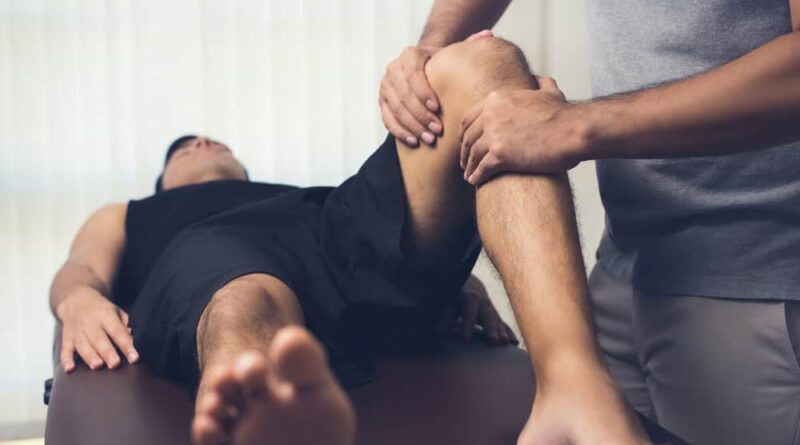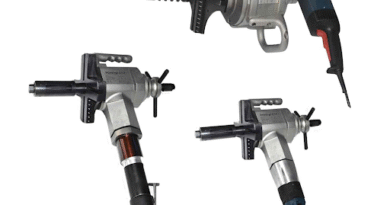How Physical Therapy Can Support Recovery from Long-Haul Conditions
Long-haul conditions, also known as post-acute sequelae of SARS-CoV-2 infection (PASC), or simply long COVID, are becoming an increasingly common concern for those who have experienced COVID-19. These conditions can manifest in a variety of ways, including fatigue, muscle weakness, joint pain, and cognitive dysfunction. While the medical community is still learning about the full scope of long-haul symptoms, physical therapy has emerged as a key component of recovery for many individuals struggling with these lingering effects.
What Are Long-Haul Conditions?
Long-haul conditions refer to the symptoms that persist for weeks, months, or even longer after the acute phase of an illness, particularly COVID-19. The symptoms can be diverse and affect multiple organ systems, including the cardiovascular, neurological, and musculoskeletal systems. Common symptoms include chronic fatigue, shortness of breath, difficulty concentrating (commonly referred to as “brain fog”), muscle and joint pain, and sleep disturbances.
For those affected by long-haul conditions, these symptoms can interfere significantly with daily activities and quality of life. While the exact cause of long-haul conditions is still being studied, early research suggests that prolonged inflammation and immune system dysfunction may play a role. Recovery from these conditions requires a comprehensive approach, and physical therapy has been shown to be a valuable part of that process.
The Role of Physical Therapy in Long-Haul Recovery
Physical therapy can offer a number of benefits to individuals recovering from long-haul conditions, particularly in improving mobility, reducing pain, and increasing strength and endurance. It is designed to help patients regain function, improve flexibility, and reduce the overall impact of symptoms on daily living. Below are several key ways that physical therapy can support recovery from long-haul conditions.
1. Improving Strength and Stamina
One of the most common complaints among those suffering from long-haul conditions is fatigue. This can make even simple tasks, such as walking or climbing stairs, feel overwhelming. Physical therapy focuses on gradually building strength and stamina, helping patients regain the energy they need to perform daily activities. A physical therapist will develop a personalized exercise program that addresses the individual’s specific needs, slowly increasing the intensity and duration of exercises as their condition improves.
2. Alleviating Pain and Muscle Weakness
Pain and muscle weakness are often experienced by those suffering from long-haul conditions. These symptoms can be exacerbated by inactivity, as many patients are unable to engage in normal physical activity during their recovery. Physical therapy can help by improving muscle strength and flexibility, reducing pain, and restoring joint mobility. Through targeted exercises and stretching routines, physical therapists can help individuals reduce stiffness and regain normal movement patterns.
3. Enhancing Cardiovascular Health
For many individuals recovering from COVID-19 or long-haul conditions, cardiovascular health may be compromised. Shortness of breath and fatigue are common, and even mild physical exertion can lead to feelings of exhaustion. Cardiovascular rehabilitation, a component of physical therapy, focuses on improving heart and lung function through controlled, progressive exercises. This helps patients increase their exercise tolerance, improve blood circulation, and reduce symptoms such as breathlessness and fatigue.
4. Addressing Cognitive and Neurological Symptoms
Long-haul conditions can also affect cognitive function, leading to issues such as brain fog, difficulty concentrating, and memory problems. While physical therapy is traditionally associated with physical rehabilitation, it can also have positive effects on cognitive recovery. Physical therapists can incorporate exercises that stimulate brain activity, improve coordination, and enhance focus. In some cases, therapists may collaborate with other healthcare professionals to create a comprehensive treatment plan that addresses both physical and cognitive recovery.
5. Improving Mental Health and Well-Being
The emotional and psychological impact of long-haul conditions should not be underestimated. The chronic fatigue, pain, and uncertainty of the recovery process can take a toll on mental health. Physical therapy provides an opportunity for patients to engage in regular, structured activity, which has been shown to have a positive impact on mental health. Exercise can boost mood, reduce anxiety and depression, and promote overall well-being. Additionally, the one-on-one care provided by physical therapists can offer much-needed support and encouragement during the recovery process.
Physical Therapy in Wilkes-Barre, PA: A Path to Recovery
If you or a loved one is struggling with the lingering effects of a long-haul condition, seeking professional help is crucial. Physical therapy can be a highly effective way to manage symptoms and improve overall function. For residents of Wilkes-Barre, PA, physical therapy can be an important part of the recovery journey. A local provider offering physical therapy services can create a tailored rehabilitation plan designed to address the specific challenges you are facing.
If you’re looking for physical therapy in Wilkes-Barre, PA, physical therapy Wilkes Barre PA can provide the personalized care needed to support your recovery and get you back to a healthy, active lifestyle.
Conclusion
Physical therapy is a valuable tool in the recovery process for those suffering from long-haul conditions. Whether dealing with physical symptoms such as fatigue and muscle weakness, or cognitive challenges like brain fog, physical therapy can help patients regain strength, stamina, and confidence. Through a personalized and progressive rehabilitation program, physical therapists can guide patients back to a functional, active life, improving their quality of life and well-being. For those in Wilkes-Barre, PA, seeking help with long-haul recovery, local physical therapy services can offer the support needed to navigate the healing journey effectively.



